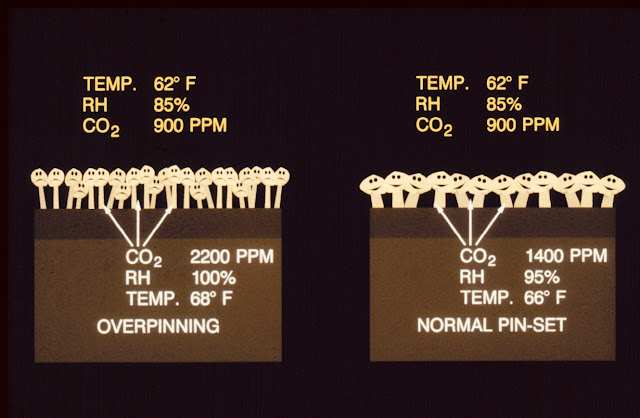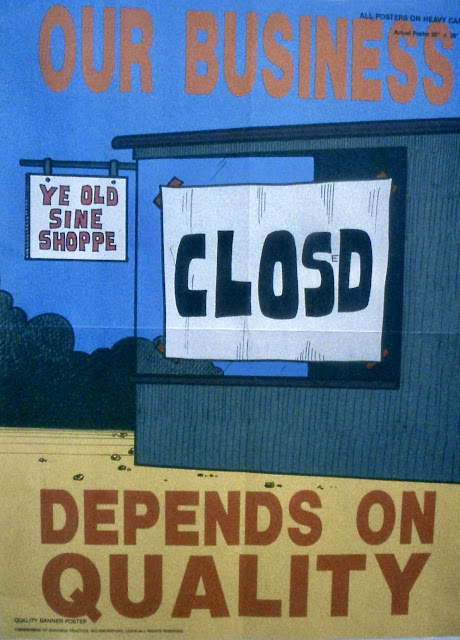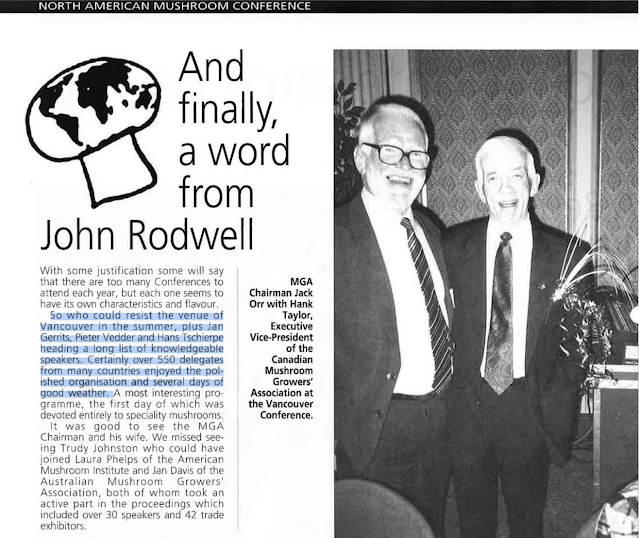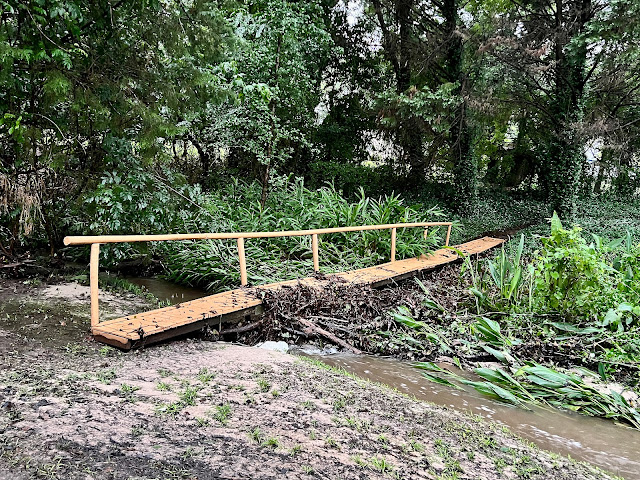Well, digitalizing everything is quite a task and I've managed to do so with a few of husband Pieter's lectures at a Congress.
BUT I only recently found the tape from the 12th NAMC CONFERENCE, VANCOUVER, BC
The Conference theme was: A BLUEPRINT TO PROFIT
Still VERY TRUE for today's mushroom farms!
 |
| Pieter JC Vedder and his constant companion less then two months after congress. |
| The standard abbreviation for 'opportunity' is 'opp'. |
She re-organized harvesting, introduced training programs at big farms in various other countries.
Since March 1989 both started working for Funghi del Montello, the biggest mushroom producing company in Italy.
In March 1990 through April 1992, they worked together in Indonesia at the biggest mushroom farm in the world. They commuted from Dublin where they have again taken up residence.
In 1993 both became American Citizens and although retired, together they still do international consulting.
I don't think they really know what the word retired means.
Their favorite hobbies are gardening the Dutch colorful way, as well as photography and music.
Mariette also imports and sells special gift items from different countries.
I like to present to you, Dr. Pieter Vedder who is going to talk about training the key to success.
 |
| Pieter is wearing the exact same silk Burberry suit that he wore for this lecture... |
Pieter...
~
Mr. Chairman, ladies and gentlemen.
Thanks first of all for the invitation to have the opportunity to be here in British Columbia, beautiful British Columbia.
Every time we are here in this area, we have special feelings because quite a while ago my daughter was born here, in Terrace, British Columbia.
As most of you already knew, or as you just have heard in the introduction, I have spent indeed most time of my life, almost forty years, in the mushroom industry; mainly in extension service and training. And besides that, as trouble–shooter, consultant.
And as Mr. O'Neil told you, my wife Mariette is also in the same business, and she is specialized in harvesting, quality assurance and so on. And most often we work and travel together. And indeed, I am retired now but you all know if you are really infected, it seems to be very difficult to get rid of that addiction.
In those different positions, and over such a period of time, we could say that we have seen it all; good and bad, right and wrong. And therefore, I appreciate today's opportunity, to share with you some of my thoughts and experiences in those fields, I like a good discussion and there is always a chance that you pick up an idea.
Talking about experience, there constantly should be one thought in the back of our mind, like this saying:
 |
| If we don't learn from our mistakes, there's no use to make them. |
If we don't learn from our mistakes, there is really no use to make them.
First of all, today I like to take the opportunity to convince you, if that's still necessary, that the key for making a mushroom operation successful or as you say 'the blueprint for profit' , is having a number of well trained, skilled, but above all, very dedicated people, working as a team.
There are numerous examples of how important people are in making a mushroom farm into a profitable business.
As I've said already many times in the past; mushrooms don't grow on aluminum racks but on well–prepared, nutritious compost, whether that compost is in a plastic bag on a bamboo shelf or packed in a brand–new plastic tray or metal rack.
We have to realize that mushrooms don't grow better after the installation of a computer as long as e.g. the compost or casing layer is bone–dry or the distribution of the supplement is very poor.
Several bigger mushroom producing companies have different growing facilities, ranging from old American doubles, to the most modern type, high investment farms, complete with tunnels, aluminum shelves, including the most sophisticated computer–controlled air–conditioning system etc.
Now ask around, what kind of farms over the years have been the money–makers.
Ask them if the most sophisticated farms as a matter of course, have also been the most profitable ones.
I know the answer. I know that sometimes it is even the opposite; the old, entirely written–off old tray–or bed–farm is still making some money while the most sophisticated new one has a hard time to break even.
It is obvious that in the first place, the people, running the farm, are the determining factor and not so much the technical qualities of the facility.
We all know that a mushroom farm will more than likely have its ups and downs; periods, with high yields and good quality product, will alternate with less profitable times, up to even deep trouble, because of virus, green mold or any reason whatsoever.
A good question then in this respect could be; do we see more constant yields or less problems on the most sophisticated farms?
In my life–time I have seen hundreds of mushroom farms and perhaps thousands of crops in countries all over the world.
Most often we are called to do some training or a farm review, when there is a problem, whether there is a severe virus outbreak or just low yields or poor quality for whatever reason.
By experience I can say that as much as 60–70% of the cases, or even more, the problems are related to compost–quality.
In such a situation it hardly makes any difference whether the farm is old fashioned or state of the art.
 |
| Temperature 62°F or 16.6°C |
Poor quality is more related to crop–management for instance by creating over–pinning and even more so with the harvesting technique then with the facility.
We can see over–pinning, bone–dry beds or trash underneath the beds on the floor, on old–fashioned farms as well as on the most modern ones.
If we start picking too late in that first break, we will end up with poor quality and even the most sophisticated and computerized climate control system cannot change that because this is a management problem.
Again, most often, the limiting factor seems not to be the facility but the people; whether making the right or the wrong decision or doing a good or a sloppy job.
An important question then is; why do people sometimes do a poor job and why once in a while they make the wrong decision?
Is it because a lack on theoretical knowledge, practical experience or is it more a question of attitude, a lack on dedication or interest or a little bit of everything?
One of my long–time friends in the mushroom business, Jörg Kuhn from Switzerland, said it already years ago. "On our farms often it is not so much the question that we don't know what to do but just get it done, day after day after day!"
We have to ask ourself why for instance we are making sometimes such a poor compost, after a period with almost perfect material and good yields?
Was it because all of a sudden we forgot the right formulation or we did not know anymore what the proper nitrogen–level should be or what the most ideal moisture–level for that kind of compost is?
It seems to be, that we rather well know how to make a good compost because we have done it many times before.
The main reason that we slipped away more than likely will be that we were not aware that for instance the weather conditions were changing or the ingredients were different from last time.
Or perhaps we let composting become too much of a routine.
It also could be that somebody came up with a brilliant idea and changed a number of things himself, without any good reason, and not realizing the consequences in full.
In that case there are a few more questions to answer.
Was the farm manager aware of the changes and did he agree?
Or, as we by experience find in most cases, the farm manager did not even know that somebody made those changes.
And this can happen, mainly because he likes to manage that operation from behind his desk and he is not enough on his feet and therefore he really is not in touch with what is going on at the farm or on the compost slab.
Perhaps there are too many meetings going on; meetings about safety, pesticide–application, etc.
All important but they result in taking away the people from their number one job and number one responsibility.
Again, if the yields are low and the quality poor, we mostly like to blame the facility and the equipment but more often it is the people and in particular; management.
Of course, a good compost–turner or a pre–wet machine can help a lot to make a good compost but only if there is somebody behind that machine who knows to operate it and who is willing to pay full attention to his job; again day after day.
Even the most expensive compost–turner cannot change the moisture–level of the substrate and even the newest pre–wet machine can chop up the straw in too short pieces if it is running too fast or used three or four times in a row, with already brittle straw.
Of course, a sophisticated climate–control system can help to create a better growing environment for the mushrooms, but only if the people who have to work with it, do know how to use it.
That high–tech climate–control system for instance cannot solve the hot–spot problem, created by over–filling, or poor supplement distribution or poor mixing.
So, before making a decision on investing quite a bit of money in new technology, or sophisticated equipment, we perhaps should think first about investing in people. I am convinced that the money spent on training and improvement of the team spirit and the working conditions will be guaranteed to have a better pay–off.
One of the main reasons that for instance new big mushroom farms, build for different investors in for instance just to mention a few countries, India, or Mexico or Indonesia, often had a hard time to survive, is the lack on knowledgeable, well –trained, well–skilled people to run that farm.
It almost sounds as if I am against new developments or against high–tech facilities.
 |
| Hillsboro Texas farm that Pieter JC Vedder designed for Campbell Soup |
That's for sure not the case; you should know better. I have been strongly involved in a number of them, but the point I try to make is, that the introduction of a sophisticated, new system or a modern piece of equipment, will not automatically solve a problem or will result in higher yields; the people have to do it.
We all know that if we start picking too late in the first break that this will have a very negative impact on the quality of the product.
Therefore, if we see that kind of poor mushrooms with long stems and stretched veil and partly already open, the conclusion could be that we have to spend more time and effort in training the harvesters; the pickers.
This might be true but perhaps the first person in need of training, is the one of the staff people who is holding the pickers off from starting picking in time, believing that the yield will be quite a bit higher that way and that is what he is most interested in.
However, we cannot put all the blame on that person for this behavior because it is often the biggest part of the system which is wrong.
The incentive systems are mainly developed years ago, in a period that most of the farms were just quantity–driven; the more, the better.
However, that philosophy doesn't work anymore, on an already saturated market where buyers are more and more just interested in quality, we have to have a different approach.
The situation has changed dramatically.
It is well–known in the mushroom world that the Dutch mushroom growers have often been ahead in the industry. Although most of the farms in The Netherlands are small or medium size, they still can have the advantages of the bigger scale producers because of their strong organization–and also their high standardization–level.
This standardization does not only apply to the facilities, like the size of the tunnels or the width of the shelf–beds but also includes the compost–and casing–preparation and most of the growing techniques. That makes training and guiding of the Dutch growers quite a bit easier and also more effective.
Almost everybody has the same type of facilities; is using the standard ingredients and is following more or less the same growing procedures. And all this makes a discussion about different subjects between growers in for instance a classroom, much more prolific.
Another important factor in the success of the Dutch training system is the availability of a well equipped and almost complete full–scale instruction farm, so that teachers and instructors are not just walking text–books but speak the growers' language!
They also can have the necessary practical skills and experience.
Another big advantage for the industry from having such a training center is the availability of a pool of young, well–educated mushroom growers.
The Dutch Mushroom Growers Training Center is in my opinion a good example how a training system for the mushroom industry could be set up.
Also the Canadians have put quite a bit of money and effort into training activities.
Everybody in the industry has to be convinced that each person who starts working on a mushroom farm in growing, should have a good understanding of the fundamentals of mushroom growing, including some knowledge about chemistry, physics, economics, etc.
If one has a good knowledge about the basics, it will for instance be much easier for him or her to make the proper decisions if the situation is changing, like for instance the effect of the outside temperature on the composting process or the interaction between the relative humidity, and the evaporation–rate and bacterial blotch.
It is worthwhile of course to organize this kind of let us say high level seminars or conferences, but we should not forget the training of the workers.
Also especially for the somewhat smaller growers a problem in participating could also be that the organizers of those happenings appear to have a strong preference for rather luxurious and therefore expensive accommodations.
With respect for what researchers in different countries are doing for the industry, not all scientists are always good in making their findings understandable for a mushroom grower. Mushroom growers on the other hand often don't try to understand what researchers are saying.
 |
| Trying to bridge that gap between researchers and growers |
It is therefore in the interest of both parties that via training we are continuously trying to bridge that gap between researchers and growers.
A good teacher, who understands both sides, can be a perfect instrument to build that bridge of better understanding.
The bigger mushroom producing companies can afford to do the training of their employees themselves, although to my knowledge and experience, only a few of the bigger companies have a somewhat structured training program and as far as I know, none of them have a specialized teacher .
In most cases the young, newly hired employees have to learn from seniors; they will hopefully copy the good things but eventually the bad habits too. They will have a hard time to judge between true knowledge and fairy tales.
In countries with a relative big number of growers with small farms, the training of young mushroom growers has to be organized, whether by government or by growers organizations.
Again, good examples of providing learning opportunities for growers are the Dutch, the Canadians and in a way also the British.
Here are in my opinion good opportunities for the supply companies, compost producers, spawn makers, etc. to offer workshops and seminars or short–courses to their customers; the way Campbell's Fresh is doing it already for several years.
The almost ideal situation should be if ambitious young growers could have an opportunity to learn the basics in a classroom situation, from some good professional teachers and the practical skills and daily work experience from a dedicated and experienced person in the field of compost preparation, crop –management, harvesting, disease control etc. on the farm.
One of the goals of the training has to be to learn the workers how to work smarter and more efficient, so that we can produce for the lowest costs.
Vocational training is a never–ending process, therefore the workers should have ongoing opportunities to participate in workshops, seminars, etc.
A problem in this area is that on most farms we are already short on people and therefore we think we can hardly afford the luxury of sending a few people for a couple of days, don’t even mention a couple of weeks, to short–courses or seminars.
Here again though, we have to invest first, before we will be able to reap the benefits later. I realize quite well, that nowadays a mushroom farm cannot afford overstaffing but on the other hand we have to make sure that we are constantly training young fellows, so that we have a replacement if an experienced grower or compost–maker is leaving or retiring.
We experienced that on a number of farms the communication between the staff and the workers could be quite a bit better. A lack on team spirit will have a very detrimental effect on the performance of the individuals. The workers are uncertain because nobody exactly told them what to do, and let alone that they have told them how to do it and why to do it a certain way.
If we visit a farm and if we talk to some workers about how a certain job perhaps could be done easier or better, we too often hear as their comment that they have made that suggestion already several times but nobody paid attention, nobody was listening.
Such kind of comments are a clear indication that farm management has to work on improving communication and improving the team–spirit.
On a number of farms, especially the bigger ones, we know that the growing staff is spending too much time in the office and, as a result of that, loosing all kind of opportunities for on–the–spot training and also for motivating, correcting or stimulating their workers.
It quite often happens that, if we visit a farm and go over for instance the compost slab, accompanied by the manager, the area manger etc. that he has to ask one of the workers what the latest compost–formulation is or the newest turning sequence, or what tomorrow's fill is.
Here again; an area manager or supervisor, spending too much time behind a desk or a computer screen in the office cannot be a good teacher and motivator for his group of workers, because he does not know what really is going on in his area. He very soon will loose their respect and also his credibility.
On a number of farms the so–called staff–meetings are not so much more then a prolonged coffee break, hardly structured with a low discipline–level and therefore not so very efficient.
The production costs nowadays are so high and the margin is so slim that we cannot afford wasting valuable time anymore.
The farm–manager first of all should try to limit the number of meetings and has to prepare an agenda. By turn, somebody should take notes and each meeting should start with a short discussion of previous meeting's minutes. Are things being taken care of as promised to do so and what are the results? If it is not done, there should be a good explanation why not.
Meetings should preferably not be held in the morning that way taking away people from the farm at a time that they are needed most.
We should not restrict that kind of meetings to just area–managers or supervisors but let by turn always one of the workers participate.
That is also a good learning experience and often surprisingly beneficial for both parties if we at least are willing to listen.
Knowledge and experience in a team has to be guided and organized in such a way that it fits in the total process; there has to be a certain discipline–level and the members of the team have to be also loyal.
It is a great thing of course that every worker on a farm has quite a bit of knowledge and experience about making compost, growing mushrooms. However, if the organization is weak and the communication poor, there is also a danger.
We have seen more often that some people, after for instance visiting another farm or going through a course or seminar, started trying to do some things different, on their own.
You only, as you know, need two or three people, each going in different directions, to create a situation on a farm where at a certain moment nobody knows anymore where to go.
If a farm is doing reasonable well, there really is no need for real changes, but there is always room for adaptation and some fine–tuning.
Suggestions for fine–tuning however have to be subject of groups discussion first, so that everybody knows about it and can do his or her part to make it a success.
For years, management has almost completely ignored the fact that the harvesters play such a key–role on a mushroom farm.
Not only do they form a big part of the total labor cost but, even more important, they can make or ruin the product.
We do all that work; preparing a good compost, spawning, supplementing, water, develop new more white strains and then we let a bunch of harvesters ruin it.
Now, under the pressure of a very strong, almost global competition, most farms start realizing that for a long time we have been too much quantity–driven in everything we did and that we forgot the most important marketing–issue; quality and presentation of our product.
 |
| OUR BUSINESS CLOSED DEPENDS ON QUALITY |
Long term, the only way to have a profitable business is by producing a quality product.
We only know a few farms where they have an ongoing and structured training program for e.g. newly hired harvesters. Most often we give a new picker a knife, a rack and some trays and tell them where to go, so that they can watch and learn from their colleagues.
With some luck, if his or her neighbor–picker is a good, well experienced one, there is a chance that he or she is learning it the right way, collecting fast a good quality product and leaving the beds undamaged and clean.
More chances however are that he or she is already learning the first day how to rape the beds, bruise the product and pull up so much casing material, that he or she is picking the next break at the same time!
Even the supervisors can't help them because they are not a good picker themselves.
They have never learned it, they are just parading in the front part of the room and corridor with a note pad, punching holes in picking slips, babysitting the pickers or whatever.
Their hands are amazingly clean and they seldom view the top bed or the lowest bed in the back of the room.
Let me ask you; how in the world can somebody try to learn somebody else for instance to play the piano if the teacher can't play himself?
Can you imagine a situation where somebody is instructing you how to drive a car but he has to admit that, although he knows how it works, he never has driven a car himself.
Maybe this sounds somewhat silly but one can almost daily see this kind of situation on a mushroom farm.
Especially in the harvesting area we can find people responsible for training, organization and supervision of the harvesting, who themselves hardly or, even worse, never ever picked a mushroom themselves.
If you recognize this situation on your farm, you have to do at least a couple of things:
First, establish and ongoing training program for harvesters; for the new–comers as well as for those who don't reach the standards for pounds and/or quality.
The instructor in such a training crew should be the best picker on the farm with some communication skills.
You have to realize that for a harvest supervisor practical experience and the right attitude will do quite a bit more than a college degree.
The second thing for the manager to do is, review and re-write the job description of the harvest supervisor.
More than likely for instance it will be more efficient and less costly to have runner–boys for collecting the product, punching holes and keeping track of picker performance.
The supervisor then can do what he or she actually should do; guiding, motivating and correcting the pickers, demonstrating what's the proper technique and explaining for instance why that small long-stemmed one has to be picked and why that bigger one with the broad stem still can wait.
The third important thing to do is reviewing your present incentive system.
Is it still based on volume, instead of quality?
Thinking and talking about total yields, and pounds picked per hour, we shouldn't just brag about volume but more and more talk about market value. Under the present market conditions it could well be that a farm is making money with a 5½ pound yield (per square foot) and good quality and sizable fresh market product and that another farm is losing money with 6½ pound but poor quality stuff (and therefore more then likely high cost as well).
Our incentive system should create an attitude towards efficiency and quality first.
The ideal incentive system could be to make the farm a kind of profit center for everyone by profit sharing.
Give the workers part of the profit but also give them part of the responsibilities.
To set some goals I like to ask you a few questions, important questions:
1. Do you agree that the only way to survive in the mushroom business is by controlling the costs and producing a high quality product?
2. Do you agree that the product quality is for a big part in the hands of the harvesting crew?
3. Do you quite often see a good product on the beds, prior to harvesting, but are you disappointed with what you see leaving from the packaging?
4. Do you agree that by far the biggest number of employees on a mushroom farm is working in the harvesting area?
5. Do you agree that mechanical harvesting can be a way to lower the harvesting cost for industry–or food–service type mushrooms, but that for a first quality fresh market product we still need well–trained human hands?
6. Do you agree that until now the industry has spent much more money and effort to increase the production and that quality, and that means for a big part harvesting, just has been treated as the step–child?
7. Do you agree that on a number of farms the harvesters ware controlling you instead of the other way around where you are in control of the harvesters?
8. Do you agree that poorly trained and careless harvesters can ruin the beds and do quite a bit of damage to the next break?
9. Do you agree that harvesters play a very important role in preventing or spreading diseases, like viruses, nematodes, green molds, etc.?
10. Did you ever find in a mushroom book a chapter about harvesting or a more or less all–round training manual for harvesters? (Mariette finally wrote one in cooperation with Sylvan).
 |
| Our newest publication: modern mushroom growing 2020 harvesting |
11. Can you sum up how many lectures have been given on harvesting on all conferences, short courses, etc. over the last decade?
12. Do you agree that it seems to be much easier for a farm manager to justify for instance US$ 170,000 for a pre–wet machine versus even half the amount towards improvements in the harvesting area?
If you have to answer most of these questions with yes, you know you have some work to do after coming home from this conference.
Thank you very much.
~
Just as our long–time friend John Rodwell summed up here above:
so who could resist the venue of Vancouver in the summer, plus Jan Gerrits, Pieter Vedder and Hans Tschierpe heading a long list of knowledgeable speakers. Certainly over 550 delegates from many countries enjoyed the polished organisation and several days of good weather.
Published in the September issue of The Mushroom Journal, the British publication for the mushroom industry.
Related links:
Editorial Review by Dr. Murray O'Neil: You Are Both Beautiful Natural Teachers | previous post by me
Fairmont Hotel, San Francisco, CA 1st North American Mushroom Conference | previous post by me
Review Quotation: Pieter JC Vedder; One of the Best Teachers in Mushroom Growing in the World | previous post by me
7th North American Mushroom Conference Pieter JC Vedder CO₂ and Temperature Management | previous post by me
modern mushroom growing 2020 harvesting | previous post by me





















